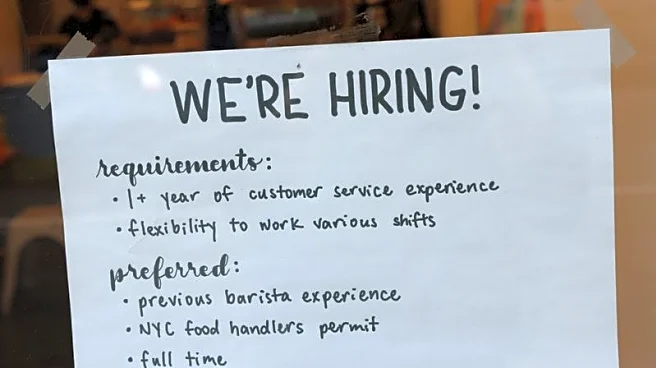What's Happening?
OpenAI's new app, Sora, designed for AI-generated videos, has surpassed one million downloads within five days of its release, according to Sora head Bill Peebles. This rapid adoption rate exceeds that of OpenAI's previous product, ChatGPT. Despite being available only in North America and requiring an invite for use, Sora has gained significant traction. The app allows users to create videos by inputting prompts into the Sora 2 model, and includes features like Cameo, which lets users create videos featuring themselves or others who have consented to share their likeness. However, the app's limited guardrails have led to the creation of videos that infringe on copyright, prompting concerns from the entertainment industry. OpenAI has responded by updating Sora to give users more control over their likeness in videos and plans to extend similar controls to rights holders.
Why It's Important?
The rapid success of Sora highlights the growing interest in AI-driven content creation, which could significantly impact the entertainment industry. The ability to generate videos featuring recognizable characters raises questions about the training data used by OpenAI's model and the potential for copyright infringement. This development could lead to increased scrutiny and regulatory challenges for AI-generated content platforms. The entertainment industry may need to adapt to new technologies that can create content at scale, potentially affecting traditional content creation and distribution models. OpenAI's approach to addressing these concerns by offering more control to users and rights holders is crucial for maintaining industry relationships and avoiding legal complications.
What's Next?
OpenAI plans to continue refining Sora by enhancing user controls and addressing copyright concerns. The company aims to provide rights holders with the ability to specify how their characters can be used, which could mitigate industry pushback. As Sora's user base grows, OpenAI will likely face increased pressure to ensure compliance with copyright laws and industry standards. The app's success may encourage other tech companies to explore AI-generated content, potentially leading to a competitive landscape in this emerging field. Stakeholders in the entertainment industry may need to engage with AI developers to establish guidelines and frameworks for the ethical use of AI in content creation.
Beyond the Headlines
The rise of AI-generated content like Sora could lead to broader discussions about the ethical implications of AI in media. Issues such as consent, privacy, and the potential for deepfakes are likely to become more prominent as technology advances. The ability to create realistic videos featuring individuals without their explicit consent poses significant ethical challenges. Additionally, the democratization of content creation through AI could shift cultural norms and redefine the role of traditional media creators. Long-term, this technology may influence how society perceives authenticity and creativity in digital media.











